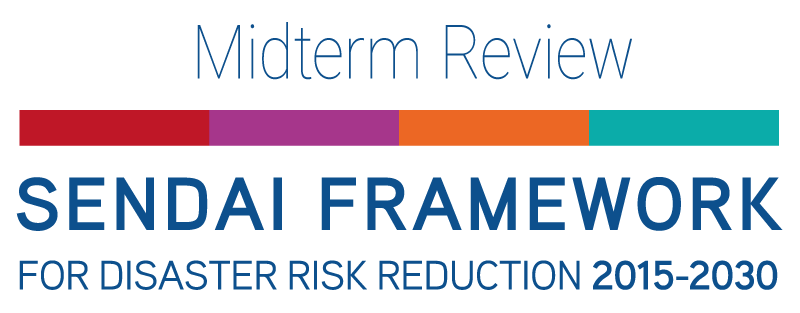
Beyond its EU focus, the RESILOC project has a natural link to the United Nations Disaster Risk Reduction (UNDRR) by successfully responding to the European Commission’s call for research and innovative actions on solutions to create a resilient society in Europe in line with the Sendai Framework for Disaster Risk Reduction.
During its study phase, the project was able to conduct extensive research that helped to describe the current gap between the Sendai Framework and the local level (the primary level affected by a disaster). Thanks to that research, the RESILOC project was able to advance the understanding of community resilience from a bottom-up approach as well as to develop a methodology based on the operationalization of Dimensions, Indicators and Proxies (DIPs). As a result, this methodology enables local communities to contribute towards overarching frameworks that are implemented and monitored at the national and international levels in a co-productive and scalable manner, and thus, strive to close the gap.
With the aim to accelerate the implementation of resilience strategies in local communities in the EU and without losing its proximity to the Sendai Framework, RESILOC went on a continuous journey with its partners from the DRS-01 Cluster (Disaster Resilient Societies Cluster of projects funded by the EU) to explore the relevant connections between the projects and the Sendai Framework. Over the lifetime of the project, RESILOC was able to participate in different workshops and organize events such as the Project to Policy Round Table with UNDRR representatives in autumn 2021. Additionally, it had the opportunity to participate in a preparatory-day session during the European Forum for Disaster Risk Reduction (EFDRR2021) and was recently invited to present the project as part of the innovation platform of the UNDRR Global Platform in Bali from 23-28. May 2022.
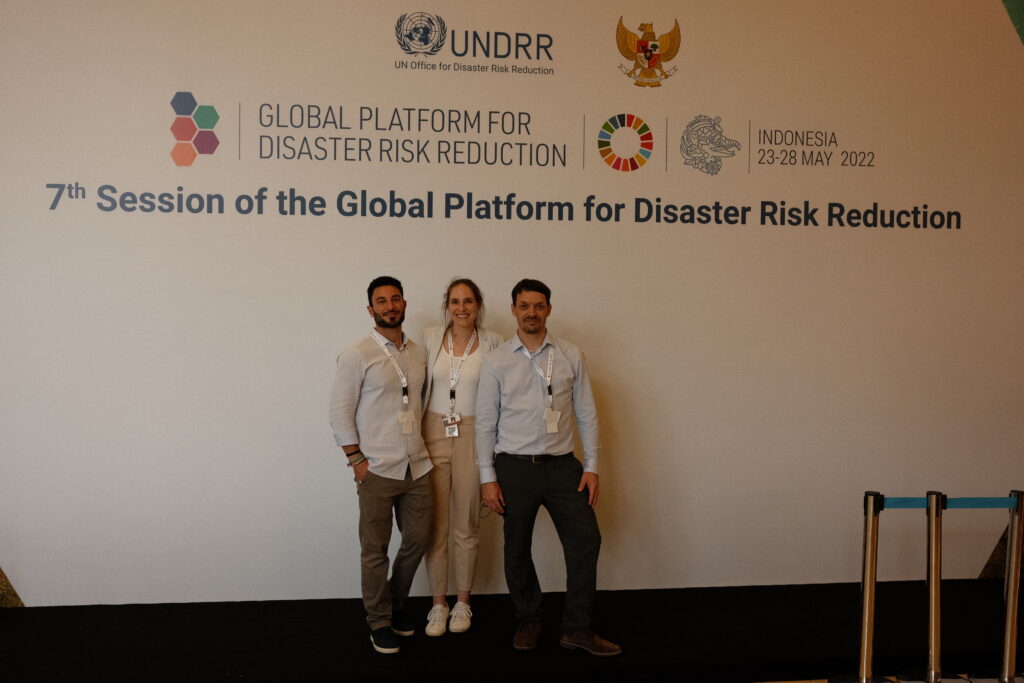
The RESILOC project went to the UNDRR GP2022 in Bali with a delegation from Fraunhofer IML (Germany) and IES Solutions (Italy). The delegation presented the RESILOC Platform, its Dimensions, Indicators and Proxies (DIPs) framework as well as experiences gained from the field trials with local communities in Catania (Italy), Gorizia (Italy) and Tetovo (Bulgaria). The conference had approximately 4500 participants per day from diverse professional backgrounds. Visitors to the RESILOC booth were mostly Disaster Risk Reduction experts from civil protection authorities, NGOs, and government representatives from different levels of disaster risk governance. Beyond this the conference was an excellent opportunity to exchange knowledge with researchers and subject matter experts who attended the conference.
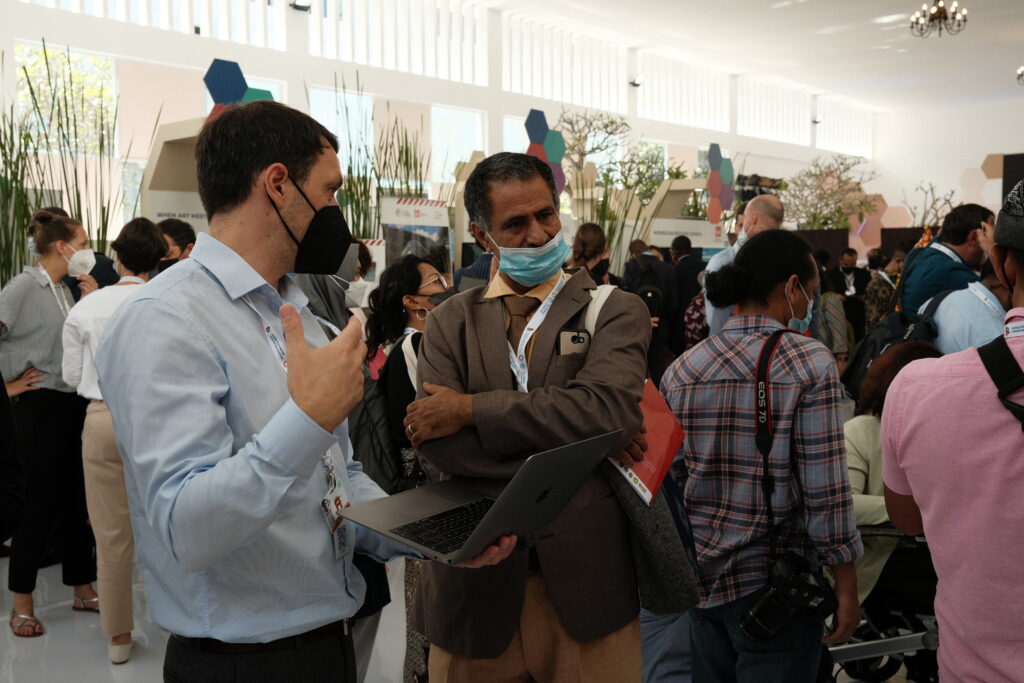
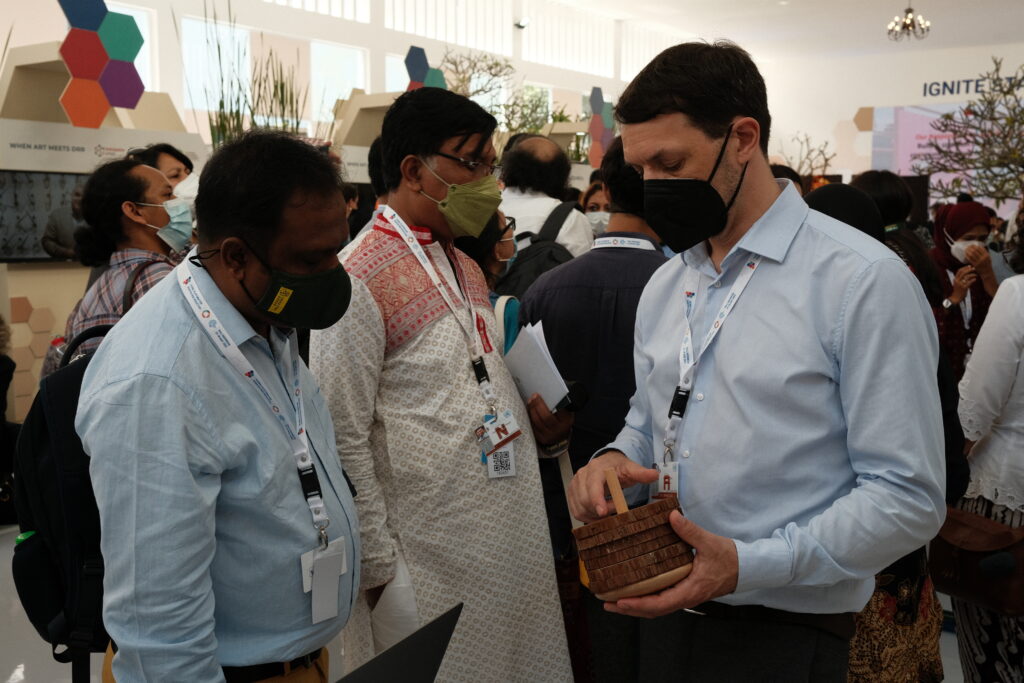
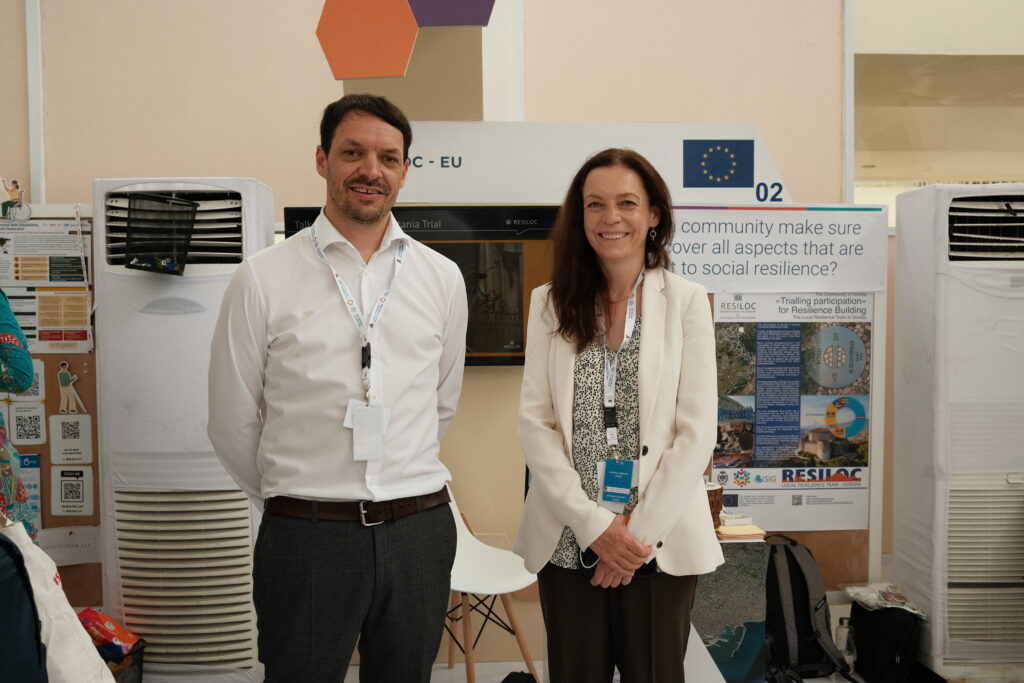
From those exchanges, the RESILOC delegation received highly positive and interesting feedback. Conference delegates pointed out the current absence and thus need for a solution (such as the RESILOC Platform) that can support local communities to assess their local resilience and develop strategies to improve it. Most booth visitors showed interest in the capacity of the RESILOC Platform to produce a graphical representation of local resilience. The exchange with experts also pointed out the significant challenge that local communities face when responding to funding schemes that trickle down from international and national Climate Change Adaptation or Disaster Risk Reduction targets to meet resilience related objectives. As a result, it appears to be that communities are often left unconsidered as they are unable to provide an evidence-based strategy, or even worse, receive funding for actions that date back to unbalanced political motives that remain inefficient in increasing local resilience.
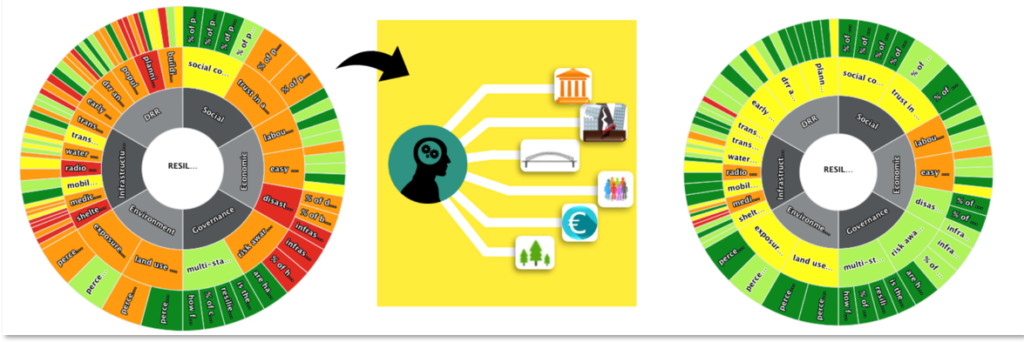
In this context, researchers, subject matter experts, and potential users of the RESILOC Platform appreciated on one hand the output from the RESILOC Platform that helps communities to showcase their resilience profile and connect needed actions to funding streams, and on the other hand, the co-productive approach of RESILOC by making Local Resilience Teams (LRTs) a central piece of resilience strategies. However, it was also pointed out, that the dependence of data that the REISLOC Platform needs to show accurate results may find its limitations in less developed communities with low data availability. The two functions within the Resiloc platform to compensate this challenge were much appreciated by visitors. Firstly, the assessment can be technically completed with an incomplete data set although this may come at the expense of its accuracy. Additionally, the Platform includes a semantic layer which detects similarities of features between communities and can thus provide results which are related to a wider knowledge base. This would require that the RESILOC Inventory is populated with sufficient data sets which is not yet the case. In some cases, the challenge of limited data availability is best to be solved with alternative tools such as the resilience scorecard.
During the UNDRR conference in Bali, RESILOC also had the opportunity to provide written interventions and attend sessions for the Midterm Review of the Sendai Framework. In addition, RESILOC engaged directly with the Sendai Stakeholder Engagement Mechanism (SEM) and other groups of local experts to discuss and overcome the ethical implications of involving Local Resilience Teams (LRTs) in the strategic planning of community resilience. This is important because ethical implications become relevant when resilience strategies are being set up in communities, thus, at the local level.
As a result of the conference, its sessions, interaction with delegates, and knowledge exchanges with subject matter experts, REISLOC benefited greatly from a positive experience in Bali. This experience will support the development of the project in its current final stage. Moreover, the outcomes of the UNDRR conference in Bali will add value to RESILOC’s final results related to policy recommendations.
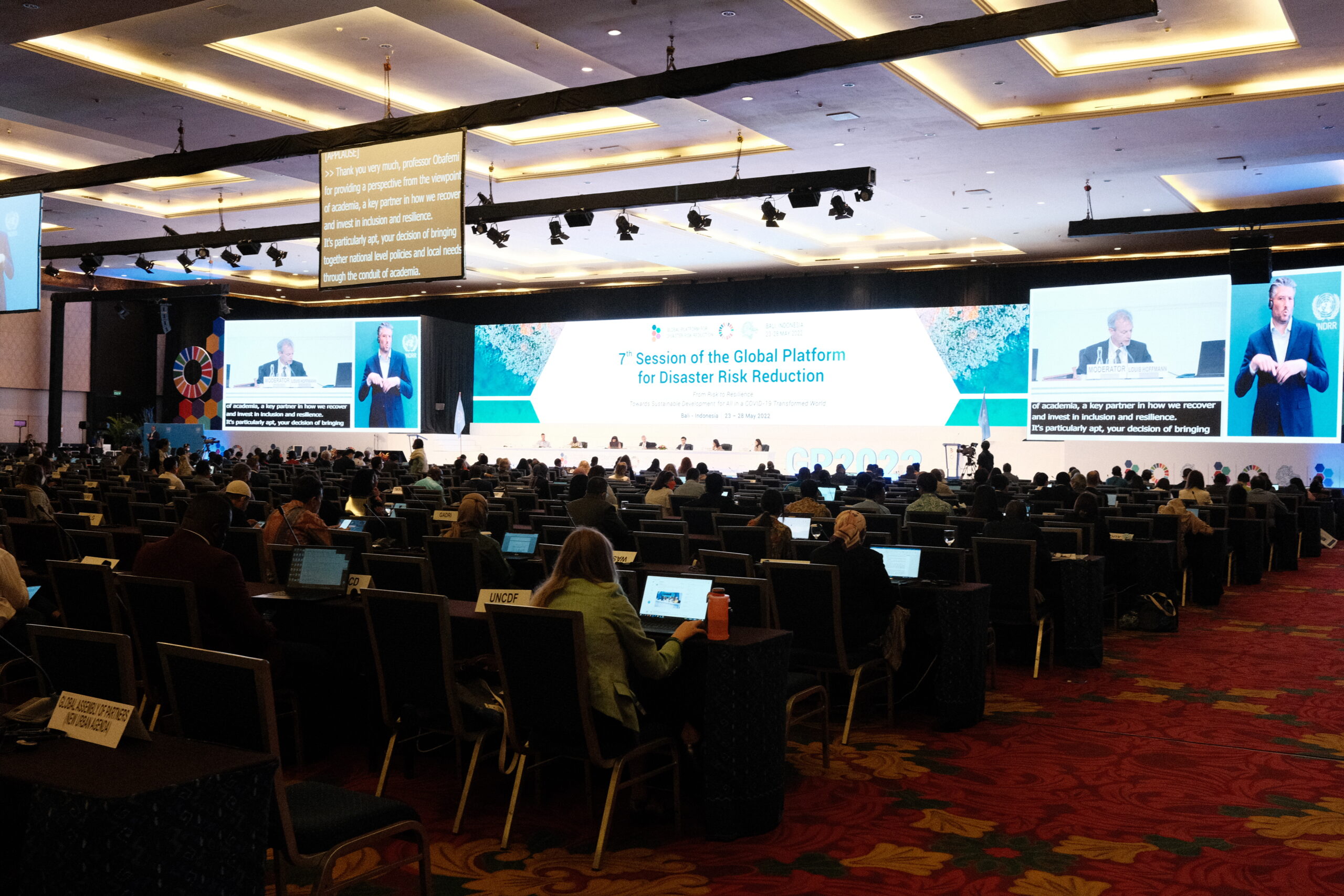
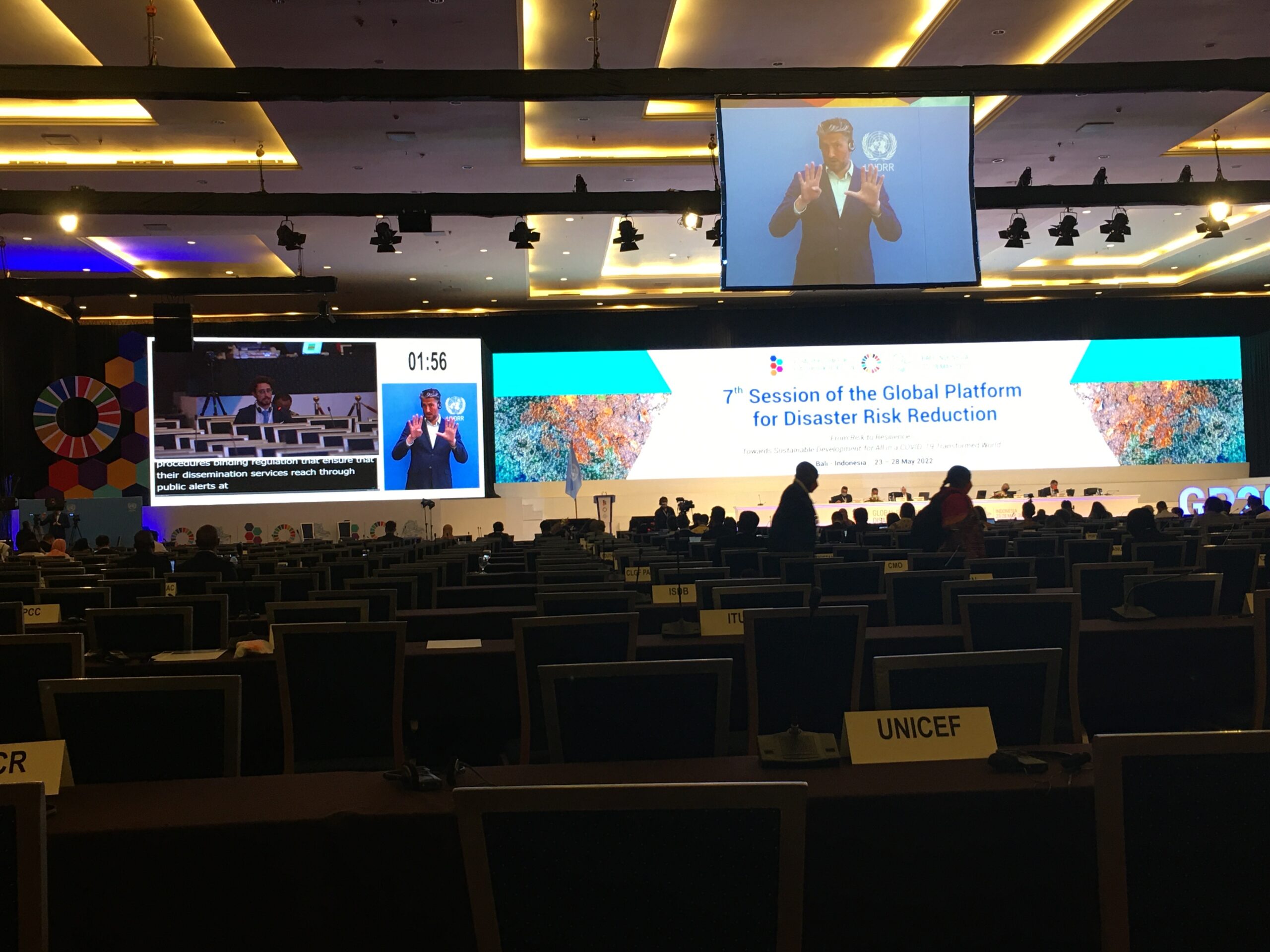
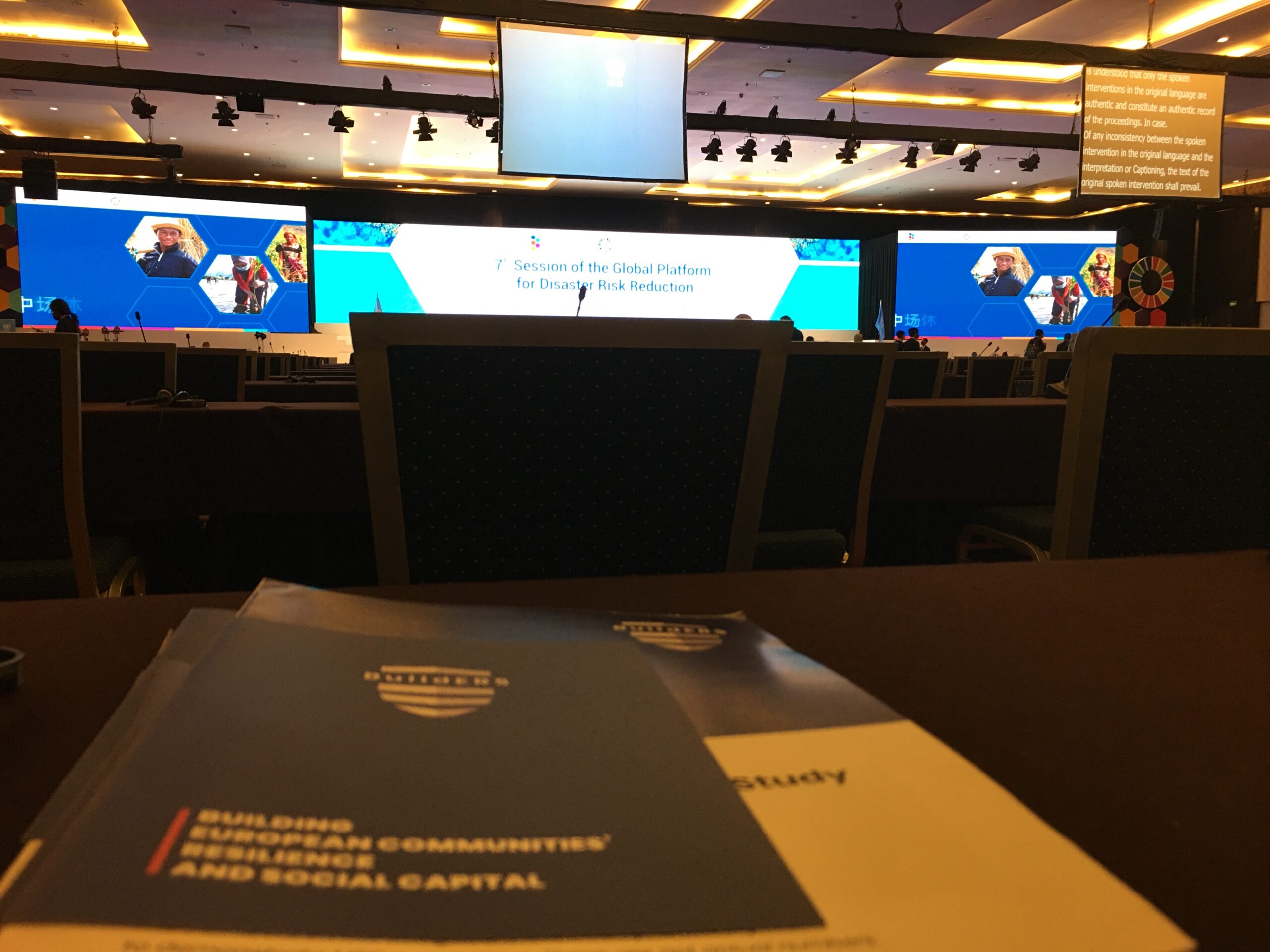
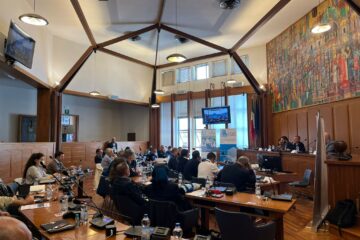
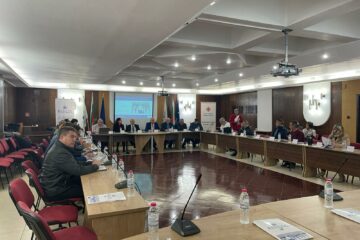
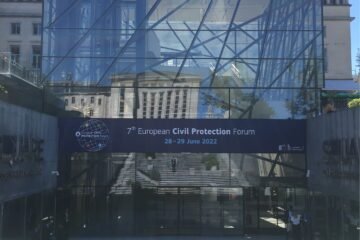
0 Comments